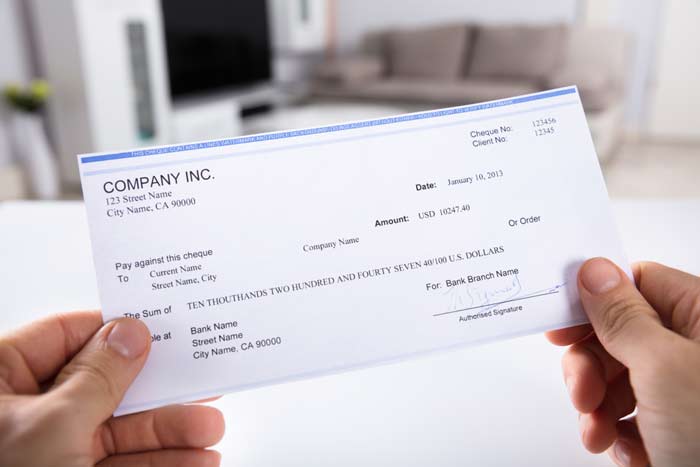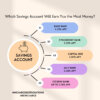First job? Congratulations! Welcome to the work force!
First paycheck? You have some planning to do.
Paychecks are your ticket to join – and enjoy – America’s economy, but there are some potholes out there on the road to riches. We’re here to see to it that mistakes, miscalculations and misunderstandings about money don’t take the fun out of finally having a steady income.
For openers, let’s be clear about one thing: what you earn is not what you get.
Remember the iconic moment on “Friends” (Season 1, Episode 4: “The One With George Stephanopolis”) when a rapturous Rachel Green, wiping tables and steaming milk for Central Park, discovers she has a partner?
“What’s FICA?” she exclaims. “Why’s he getting all my money?”
Accordingly, study that first pay stub. See where your earnings go, and who’s getting them, before the balance lands in your bank account. Learn about FICA (Federal Insurance Contributions Act, AKA “payroll tax,” the vehicle that funds Social Security) and the various taxing authorities withholding a portion of your pay in anticipation of your first experience with income taxes.
Every worker in the U.S. is subject to federal withholding taxes. Workers in all but nine states (Alaska, Florida, Nevada, New Hampshire, South Dakota, Tennessee, Texas, Washington and Wyoming) pay state income taxes. There is even an income tax assessed locally in places like New York City, Washington, D.C, Baltimore, Louisville, Ky., and Birmingham, Ala., not to mention 235 cities and 331 villages in Ohio!
Other assessments also may come into play, depending on how your company structures its benefits. For instance, you may have to contribute a portion of earnings toward your medical insurance, or a pension plan. (Yes, they still exist, particularly for public-sector workers.)
In short, study your pay voucher. Know, to the penny, what’s coming out of your earnings before they get to you and understand how those deductions are determined; as you gain knowledge, you may have at least a little influence on your bottom line.
Are you under 26 and have an employed parent whose benefits include group health insurance (and they’re willing to keep you on)? Good news! You don’t need to sign up for your employer’s program, which might not only save you a deduction, it might — if you’re still looking, or looking for something better — make you more employable because your company won’t have to bear the financial burden of your medical needs.
That said, be a sport. Not only will mom and dad appreciate it if you tucked money away to handle at least a portion of the deductibles and copays you incur, you’ll gain valuable experience regarding the impact of medical care on your budget’s bottom line.
Respect, but Don’t Fear, the IRS
Once you’ve been hired, you’ll have to fill out a bunch of forms. Among them is a W-4, which the Internal Revenue Service uses to approximate your likely tax bill next April, and, thus, how much your employer should send to the U.S. Treasury Department in your name each payday.
Under the tax reform act Congress passed in December, this could get tricky. Get a fix on how to fill out the form by using the IRS’s tax withholding calculator.
Something to consider: Income tax refunds are thrilling, kind of, until you figure out you have been giving Uncle Sam an interest-free loan. How much better off would you be to break even, or even owe a small sum, if instead of sending Washington an extra $15 every pay period, you were socking that sum into an interest-bearing savings account, or even an exchange-traded stock fund?
Study your company’s benefits package. (Even if you’re working only part-time, some of your employer’s benefits may apply.) Understand how you accrue paid time off (few employers differentiate between vacation days and sick leave anymore); whether you have to contribute to your medical coverage (and if so, whether you have access to a health savings account [HSA]); and whether your employer offers a tax-advantaged retirement investment plan.
Speaking of the folks, if you’re still living at home — and that arrangement suits everyone — congratulations: Assuming Mom and Pop aren’t charging you the market rate for room and board, you have an opportunity to stack up savings at a rapid clip. (Although, for your sense of dignity, and to demonstrate you don’t take your parents’ largess for granted, you could insist on kicking in on the grocery and utility bills, at minimum.)
Granddad’s rules still apply
Some truths about earning are eternal. Live within your means. Pay yourself first. Pay cash whenever you can. Interest never sleeps; pay off debt as quickly as possible.
So, yes, Granddad was right.
Something you should establish straightaway: How often are you paid? Some jobs pay monthly, others weekly, still others biweekly. When you are paid will influence how you manage your expenses.
Because they abhor paper, your employer will prefer, to the point of insisting, on paying you electronically, with an automatic deposit in your bank account.
You are not without influence in this matter. If you are determined to save a portion of your pay — and you should be — you can designate various accounts into which you have money deposited. Most likely, you can distribute deposits into as many accounts as you have specialized needs: living expenses, emergency savings, big-ticket savings, vacation fund, and so on.
If you have loans that helped pay for school, now is the time to figure out how to pay them down, and off. To get a plan that best suits your current situation, check out the federal government’s student aid calculator. Maybe the Standard Repayment Plan — everything gets paid off in 10 years — is right for you; maybe it’s not. It’s best to know your options.
Help HR Help You: Check for Errors
Anyone who has landed a job has been at the business of living long enough to have discovered that people are not flawless. And, because people are responsible for inputting information into systems, systems are not flawless. In the vast majority of cases, errors are simply that; when miscues happen, they’re almost exclusively the result of human error.
If for no other reason, you should make a habit of checking your pay stub. In all likelihood, the amounts will be as they should be. If they’re not, take action. If too much is getting deposited in your bank account, when the goof is discovered, your company probably is going to expect to be paid back. Are you being shortchanged? Gently point it out to those accountable for payroll. They’ll get you caught up.
Get Yourself Financially Savvy
Chances are your education to this point has not included much in the way of personal finance. That’s unfortunate, but all is not lost.
Increasingly, companies are introducing programs to help their employees become more financially savvy. Aetna, SunTrust Banks, and Pitt Ohio are just a few to climb aboard the money-management bandwagon. Ask your HR department whether your company has similar opportunities.
If not, seek professional help. No, really. Financial advisers are not just for the wealthy. They also are for the steadily employed who, over time, are going to expand their earning potential. A competent financial advisor will help you establish a reliable budget that will keep you solvent, brief you on investment schemes, and help you establish a firm plan for the future.
You’ll know you’re on the right path if your adviser begins with a chart that makes it clear:
Your check is a financial pie
Think of your net paycheck as a pie divided into irregular slices: a half, about a third, and a fifth. Let’s work backward.
Twenty percent should go into retirement investing. Yes, retirement. The sooner you start, and the more you can kick in early, the better off you’ll be when your golden years arrive. Does your workplace have a 401(k) or similar program? If your employer matches your contributions up to a certain percentage, do all you can to invest at least that much; otherwise, you’re leaving free money on the table.
How will the dollars pile up? Let an investment calculator do the work for you. There are plenty to choose from online, although we like investor.gov, which offers a calculator with a nifty wrinkle: It lets you see how your investments will grow within a range of your choosing.
Pick a reasonable investment amount, say $200 per paycheck, or $100 per week. Maybe $100 of that is yours, and $100 comes from your employer (based on an average 6% match and a starting salary of $45,000). You start with nothing, and keep plugging away for 45 years. If you get only the historic S&P 9.7% return, you’ll hit retirement with about $3.8 million. investor.gov allows you to adjust for optimistic and pessimistic returns as well.
Word to the far-sighted: Start immediately.
Thirty percent should go into big-ticket and rainy-day, or emergency, savings. Pound the latter first. It’s not fun, obviously, to set aside money that’s to be used only in the case of disaster, when you would rather be socking away cash for the down payment for a place of your own.
But once you have at least three months — preferably six months — living expenses in a liquid asset, such as a savings account or credit union shares account, you will have invested in the sort of peace of mind only money can buy. If the transmission falls out of your car, you become ill, or you manage to get sideways with the management at work and need a fresh start — we had a boss who called it “Go to hell money” — you’ll be able to cope financially.
Once you’ve established that cushion, you can start saving with the same fervor for that condo on the beach, or the 3/2 bungalow in the nice neighborhood 10 minutes from work, or that sweet ride you’ve been eying since high school graduation.
That leaves half to pay the balance: housing, food, utilities, transportation, clothes, entertainment, debt. As mentioned above, if you’re still at Mom and Dad’s place, and everybody is content with that arrangement, it makes the 50% go further.
Postponing your launch is not a recommendation, exactly. Independence has merits that cannot be entered on a ledger sheet. It is merely a discussion point. We’ve known well-adjusted adults who spent several early professional years in their growing-up bedroom, building eye-popping savings, and others who couldn’t wait to have their own place, no matter how it strained their budgets. Some things are beyond price.
Finally, since we’re talking about first paychecks here, and the long row you’ve hoed to be worthy of employment, the answer you’re looking for is: Yes. According to most experts, you are allowed to blow even a substantial portion of your first earnings on a reward. A big night out. A precious bauble. A really nice putter or wedge.
Just don’t make a habit of it.
Nobody said adulting wasn’t complicated. But once you get the hang of it, wow, is it liberating.

9 MINUTE READ
Home » OneVision Blog »
Sources:
- Stutsman, S. (2017, June 12), What not to do with your first paycheck. Retrieved from https://onmyway.wf.com/what-not-to-do-first-paycheck/.
- Tergesen, A. (2018, Feb. 27), Companies Pay Workers To Get Savvier With Money. Retrieved from https://www.wsj.com/articles/companies-pay-workers-to-get-savvier-with-money-1519048800.
- NA, (2016, December 22) Cities with an Income Tax. Retrieved from https://www.priortax.com/filing-late-taxes/cities-with-an-income-tax/
- Saunders, L. (2018, March 2), Check Your Withholding Math or Risk a Painful Tax Shock. Retrieved from https://www.wsj.com/articles/check-your-withholding-math-or-face-an-unhappy-tax-surprise-1519986601.
- N/A (N/A), IRS Withholding Calculator. Retrieved from https://www.irs.gov/individuals/irs-withholding-calculator.
- N/A (2017, May 3), Best things to do with your first paycheck. Retrieved from https://www.dbs.com.sg/personal/articles/myself/career-business/best-things-to-do-with-your-first-paycheck.
- Backman, M. (2015, Dec. 13), 4 Things to Do When You Get Your First Paycheck. Retrieved from https://www.fool.com/investing/general/2015/12/13/4-things-to-do-when-you-get-your-first-paycheck.aspx.
- Grothaus, M. (2017, March 20), What I Wish I Knew About my First Paycheck. Retrieved from https://www.fastcompany.com/3069000/what-i-wish-i-knew-about-my-first-pay-check.
- Cheng, M. (2017, Oct. 9), What to Do With Your First Paycheck. Retrieved from https://www.thebalance.com/budgeting-tips-before-spending-your-first-paycheck-4151599.
- Lucas, S. (2016, May 23) What to Do With Your First Paycheck. Retrieved from https://www.inc.com/suzanne-lucas/what-to-do-with-your-first-paycheck.html.
















